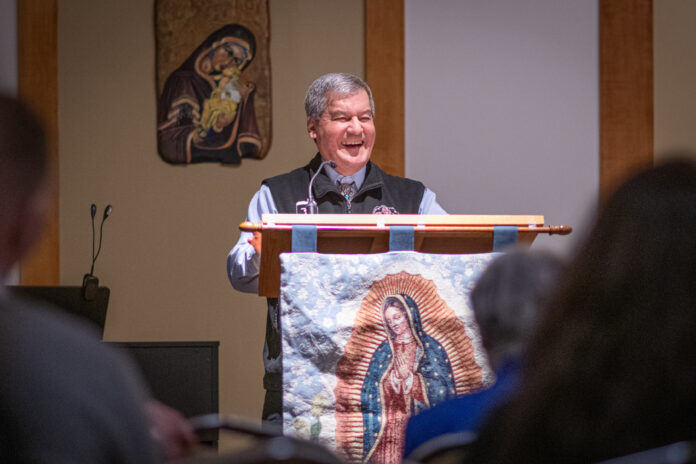In 1952, Honorable Graydon Nicholas failed Grade 1 when he entered an English school for the first time. He grew up with the Wolastoq language in the Tobique First Nations. His brothers and sisters taught him his English name, Graydon, for the first time the evening before the first day of school.
Nicholas came home with his report card. He recalled his mother saying “try again.” He was the first in his family to fail Grade 1. He was ridiculed and made fun of, “Grade, did you grade?… painfully, the answer was no.”
“I couldn’t read new words, I knew words, but I could not put them together to read in a sentence,” he said.
Nicholas’ community had no preschool, library or books for him to read, nor did he have extra help in the classroom.
He felt his whole community was against him. His mother, being his advocate, brought some solace with her wise words.
“’Ignore them. They don’t know what they are talking about. They don’t know who you are. I know who you are, and I know you’ll do well,’” he remembered his mother’s words.
On Feb. 15, Nicholas told his story at the STU Chapel as part of the series Theology After Hours. Beyond telling the audience about the hardships he faced growing up, he talked about how his healing process took him from failing Grade 1 to being appointed 30th Lieutenant Governor of New Brunswick.
His healing process wasn’t easy. Nicholas had buried that pain deep inside him, but it surfaced during prayer time at the one-week silent retreat at the Jesuit Center in Guelph, Ont., in 1986.
He shared the root of his pain, failing Grade 1 and being ridiculed by the whole community, with his spiritual director.
The exercise of sharing this memory incentivized him to mentally wash the feet of everyone who hurt him as Jesus did in the Bible. Nicholas did not think that he could do this, but one night at 3 a.m., with the help of Jesus, he mentally washed the feet of 300 people who had caused him pain.
“I felt like a whole load was removed from my shoulders; I felt free and just love,” he said.
“Now ask those 300 to wash your feet and tell them that you forgive them and they should forgive you for all of the years of hatred that was inside you.”
After this realization, Nicholas’ healing journey began. For him, it didn’t matter if he knew more than other people or if he was better, because in the end, “we are all brothers and sisters on a sacred journey.”
“We are all loved by our creator,” he said. “We either make a fist when we are angered or open our hand to connect with others, which is much more freeing … What do you have to say about yourself?”

